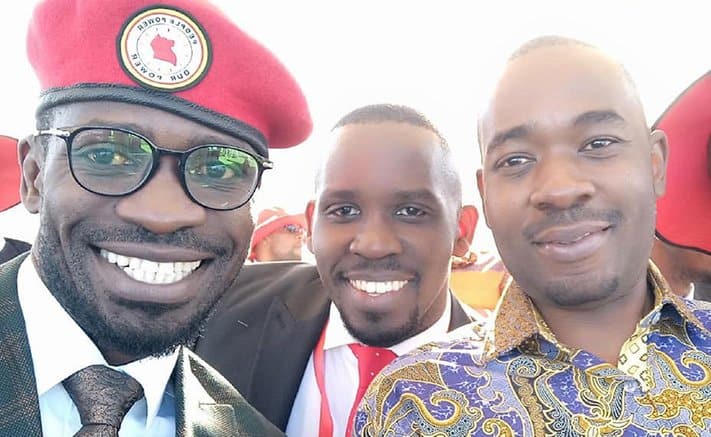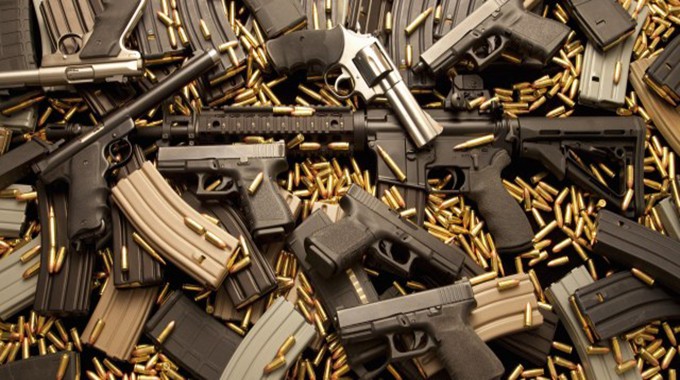By Nic Cheeseman
As I sat down to write this month’s column opposition leader Bobi Wine was casting his ballot in the Ugandan presidential election.
Confident of victory given the wave of fervent support for him both online and at rallies, some of his advisors began to discuss the best ways to safeguard the vote.
They also talked about how to keep him alive and well in the event of a mass uprising against any attempt to rig the election for the incumbent, President Yoweri Museveni, and the inevitable violent government crackdown that would result.
This is what it has come down to. Unlike their counterparts in Ghana and Malawi, opposition leaders in authoritarian states such as Tanzania, Guinea, Uganda, Cameroon, Zambia, Togo and Zimbabwe are not able to focus solely on the task of defeating entrenched ruling parties at the ballot box.
Instead, they have to invest scarce time and energy in evading physical attacks and arbitrary imprisonment on trumped up charges – including treason – that could see them locked up in prison with limited or no protection against COVID-19.
By the time you read this, there is every chance that Bobi Wine’s will either have been placed under house arrest or that his convoy will have been teargassed, blockaded, and shot at – and worst of all that some of his supporters will be dead.
If that happens, one of the many reasons will be that authoritarian leaders around the world no longer really believe that there will be international consequences for domestic human rights abuses.
The art of law fare.
Despite the increasingly flagrant nature of repression in many countries, authoritarian leaders are remarkably reluctant to be seen as dictators.
Instead, they depict human rights abuses as the simple implementation of the rule of law. It has always been this way.
Although their ability to strike terror into the hearts of their opponents depends on their ability to act arbitrarily, autocrats crave the respectability of the law.
One of the most common misconceptions of dictators is that they pay no attention to the official rules of the game.
Although their ability to strike terror into the hearts of their opponents depends on their ability to act arbitrarily, autocrats crave the respectability of the law.
This is not just because the law offers an easy justification for abuse. It is also because being a force for stability and order is a core part of the self-identity of most authoritarian leaders.
President Museveni’s self-perception may be increasingly departing from reality, but he firmly believes that all that is standing between Uganda and political instability and chaos is his leadership.
In Museveni’s eyes, Bobi Wine, just like Kizza Bessigye before him, is little more than a dangerous rabble-rouser who cannot be trusted with his legacy. For Museveni, he, and he alone, can protect the country from a return to the dark days of civil war.
In addition to the desire for self-protection, this hubris is a powerful reason why figures such as Museveni are desperate to retain power. It also means that they like to find a legal reason, however spurious, to lock up their rivals.
Unfortunately, colonial era legislation that is still on the books, repressive legislation passed by pliant parliaments, and new social distancing regulations introduced to combat COVID-19 have given an embarrassment of riches when it comes to finding “legal” means through which to enact human rights abuse. In this way, the law has been weaponised against the opposition.
It is not too much of an exaggeration to say that being an effective opposition leader in these countries has been criminalised.
In Uganda, members of the opposition were consistently stopped, detained and arrested on a range of spurious charges. Their lawyers, advisors and financial backers are often also arrested on trumped up charges such as money laundering.
And when opposition supporters rise up to challenge this abuse they receive similar treatment, being branded as criminals or terrorists in order to justify a heavy handed response from the security forces. Already scores of Bobi Wine supporters have lost their lives, while hundreds have been arrested.
Exhausting the enemy.
It is not just opposition leaders that are feeling the brunt of law fare. Almost anyone willing to criticise the president is in the firing line, and that means that civil society and the independent media are increasingly at risk.
Just last Friday, Hopewell Chin’ono the, well known Zimbabwean journalist, was arrested for the third time in six months. His crime? Allegedly “communicating falsehoods prejudicial to the state”.
What does that mean in reality? It appears that Chin’ono was arrested for criticising the police force on social media after a video was circulated that appeared to show a mother’s anguish after her baby was accidentally killed by a police officer as he beat her with a baton while enforcing COVID-19 restrictions. The baby, the government now claims, did not in fact die, and so Chin’ono spread a falsehood.
Never mind that he could not have knowingly lied, because everyone who engaged with the story on social media believed that baby – which does not move in the video – was dead.
Never mind that thousands of people responded to the story with criticism of the security forces, including ZANU-PF supporters. Never mind that there was no denial that the police officer needlessly beat a woman that he was supposed to be protecting.
None of this matters, because the government was simply looking for is a pretense. Being a regime of law fare, the aim of this episode was not to create a watertight case but to take any opportunity to manipulate the law to harass, frustrate and ultimately exhaust its critics.
This explains why in addition to Chin’ono, Job Sikhala and Fadzai Mahere – opposition spokesperson and one of the most eloquent thorns in President Emmerson Mnangagwa’s side – were also detained. Their real “crimes”? To consistently expose and contest ZANU-PF corruption and hypocrisy.
A new era?
There is an inherent tension between the attempt by leaders such as Mnangagwa and Museveni to depict themselves as the defenders of law and order and the obvious reality that they are, in fact, sources of instability and conflict.
The threat that human rights abuses will lead to serious consequences rings increasingly hollow.
The more extreme use of law fare simultaneously makes life impossible for the opposition while undermining the foundations of the regime’s own legitimacy both at home and abroad.
In this way, the recent anti-democratic trend marks a particularly dangerous new development – and one that tells us something profound about the state of international politics.
Election rigging is hardly something new, especially in these countries. Back in 2015, I wrote that if electoral manipulation was a sport Yoweri Museveni would have been Olympic champion.
But part of the skill of election rigging over the past two decades was to make it less blatant, to create the impression of a “just good enough” contest so that leaders could come out the other side with greater credibility and legitimacy.
The growing disregard for how free and fair an election looks tells us that Africa’s dictators are confident that the international community is in no place to make good on its rhetorical commitment to democracy.
As a result, the threat that human rights abuses will lead to serious consequences rings increasingly hollow. In the absence of any significant deterrent, the gloves have come off – and without a concerted and coordinated international response, the situation is going to get worse before it gets better.
Author is a Professor of Democracy at University of Birmingham. Author of ‘How to Rig an Election’. Founder of www.democracyinafrica.org. Co-producer of Resistance Bureau.
-The African Report














